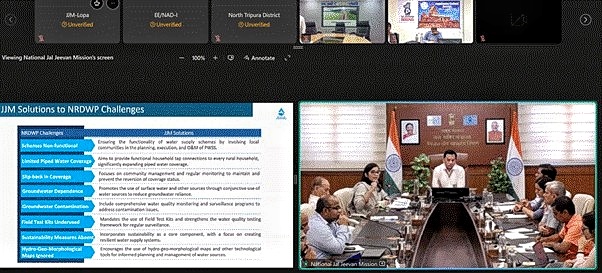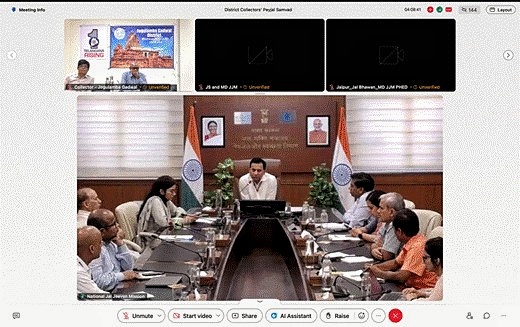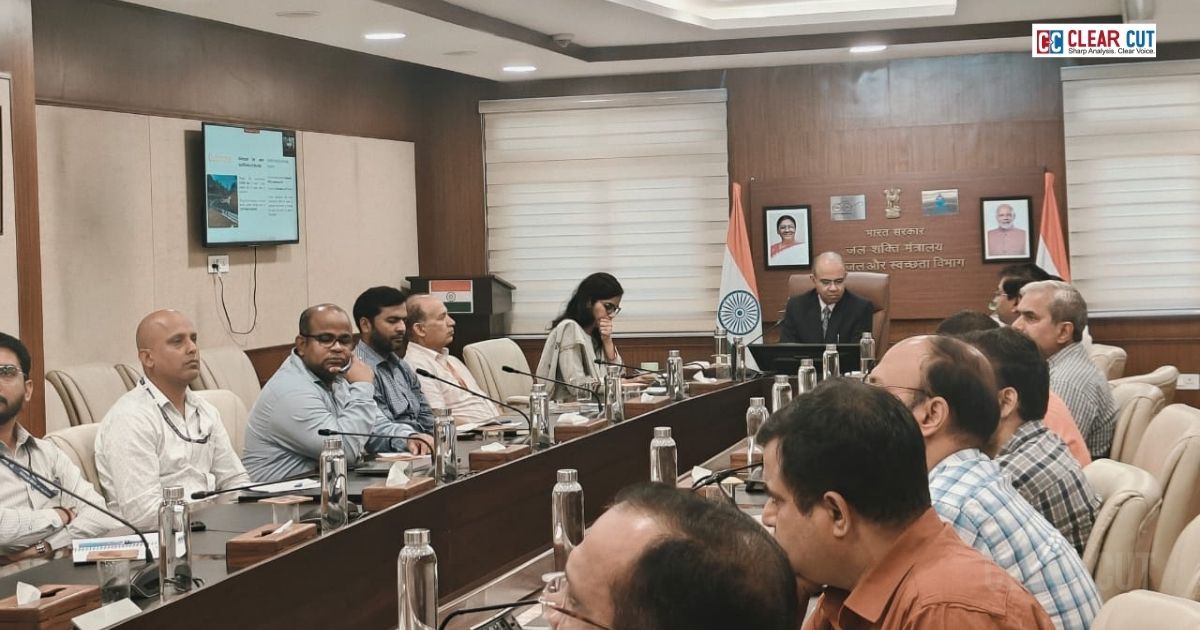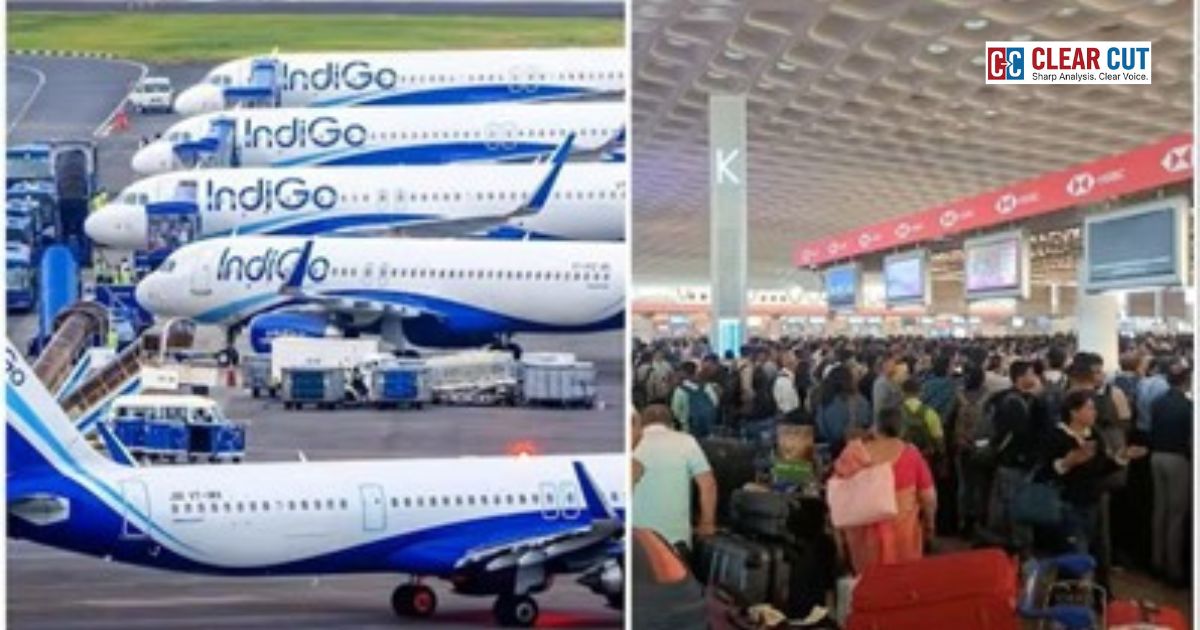Photo Credit: WASH Desk
Clear Cut WASH Desk
New Delhi, UPDATED: Oct 15, 2025 01:13 IST
New Delhi, 14 October 2025 — The Department of Drinking Water and Sanitation (DDWS), under the Ministry of Jal Shakti, held its first nationwide District Collectors’ Peyjal Samvad today, marking a strategic shift in India’s rural water policy from infrastructure expansion toward sustainable, institutionalized service delivery.
With the Jal Jeevan Mission (JJM) having achieved access to tap water in over 15.71 crore (81.17 %) rural households, the Mission is now transitioning into a new phase centered on functionality, accountability, and sustainability. The Peyjal Samvad is designed to strengthen district-led governance, encourage innovation, and facilitate peer-learning across districts.
The event, held virtually, was chaired by Shri Ashok K. K. Meena, Secretary, DDWS, joined by Kamal Kishore Soan, Additional Secretary & Mission Director, and Swati Meena Naik, Joint Secretary, along with district collectors, state mission teams, and senior officials from across India.
Strengthening district-level institutions
The Samvad initiative builds upon ongoing reforms to entrust local bodies with greater responsibility and decision-making in rural water governance. DDWS has recently engaged 729 district collectors in dialogues (virtual and in-person) and introduced integrated dashboards within the JJM-IMIS system, linking district and Panchayat-level data modules.
Moreover, more than 80,000 Sarpanches have been onboarded through the Sarpanch Samvad mobile app, in collaboration with the Quality Council of India (QCI), to promote stronger local ownership and accountability. Citizen-facing tools such as WQMIS and Citizen Corner, alongside spatial mapping via PM Gati Shakti, seek to reinforce transparent, data-driven oversight from village to state levels.
During his keynote address, Secretary Meena noted that each district has developed unique innovations and best practices suited to local realities. He advocated for making local institutions the backbone of rural water delivery, where decisions are evidence-based, operations accountable, and communities active custodians.
District Collectors from East Khasi Hills (Meghalaya), Ganjam (Odisha), Ratnagiri (Maharashtra), Charaideo (Assam), Dhamtari (Chhattisgarh), and North Tripura (Tripura) presented their district-level approaches. Topics included source protection via catchment plantations, strengthened group-water supply models, community-led user charge collection and maintenance, robust monitoring systems, and grievance redressal platforms.
Digital transformation for accountable governance
An important highlight of the dialogue was the unveiling of the RPWSS ID Module, a digital public infrastructure initiative. Each rural piped water supply scheme will be assigned a unique digital ID, facilitating real-time tracking, predictive maintenance, geo-referenced mapping, and performance monitoring.

Photo Credit: pib.gov.in
For district administrations, the RPWSS IDs enable sharper oversight of Gram Panchayats, prioritization of interventions, and efficient resource coordination. For Panchayats, the module supports maintenance planning, early problem detection, and data-driven budgeting. At the citizen level, pipeline maps, water quality data, and grievance channels are expected to enhance transparency and responsiveness.
By linking village-level status to higher administrative tiers and integrating planning, funding, and monitoring, the system aims to close feedback loops between policy and practice.
Looking ahead: institutionalizing peer learning and sustainability
In closing remarks, Shri Soan emphasized that JJM has evolved from a scheme focused on infrastructure creation to a movement centered on governance reform, decentralization, and citizen participation. The Peyjal Samvad will be institutionalized as a recurring national platform for peer-exchange, knowledge sharing, and collective problem-solving.

Photo Credit: pib.gov.in
While acknowledging the progress thus far, Soan also stressed the need to protect rural piped infrastructure, prevent contamination of water sources, and strengthen regulatory oversight alongside community empowerment.
As JJM pivots from coverage targets toward “service provision that lasts,” the Peyjal Samvad signals a deeper commitment to governance reforms, community ownership, and digital accountability mechanisms. The Ministry reiterates that “Har Ghar Jal” (tap water to every household) is not the endpoint but the start of a new paradigm of rural water sustainability.




